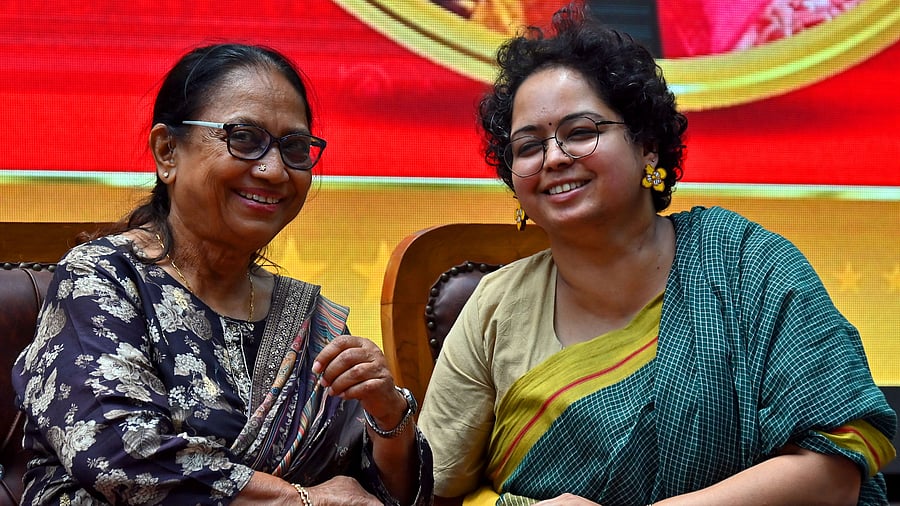
Booker Prize winners Banu Mushtaq and Deepa Bhasthi participate in an interaction session organised by Karnataka Media Academy and Press Club of Bangalore at the Press Club in Bengaluru on Wednesday.
Credit: DH PHOTO/PUSHKAR V
Bengaluru: Booker Prize winner Banu Mushtaq, speaking at an interactive session at the Press Club of Bengaluru on Wednesday, urged young people not to feel inferior for lacking fluency in English.
The event, jointly organised by the Karnataka Media Academy and the Press Club, featured Banu Mushtaq and translator Deepa Bhasthi in a conversation about their acclaimed book ‘Heart Lamp’.
Responding to a question from the audience about Kannada-medium students who struggle with English, Banu Mushtaq shared her own experience: “I studied in a Kannada-medium school until high school. Even now, English is difficult for me. When I went to London, I explained this to people there—I never felt ashamed of it. Children from rural areas should not feel embarrassed. They should focus on gaining knowledge and speak confidently in their own language.”
She added, “There are so many translation tools and support systems available today. After I won the award, I gave an interview to the BBC and found it hard to understand their English. I requested help from language assistants and managed just fine. If you have valuable knowledge, people will find ways to access it—language won’t be a barrier.”
Asked whether the Booker Prize committee could easily grasp her stories, which deal with themes like culture, religion, and caste, she said, “Patriarchy is not limited to Karnataka—it exists globally. So the committee didn’t need special context to understand
my work.”
Deepa Bhasthi said, “Translation is never easy. One must deeply understand the culture and intent of the original writer. It’s not just a mechanical process—it’s a form of writing in itself.”
